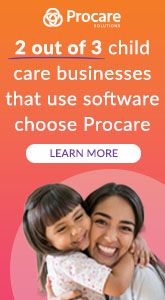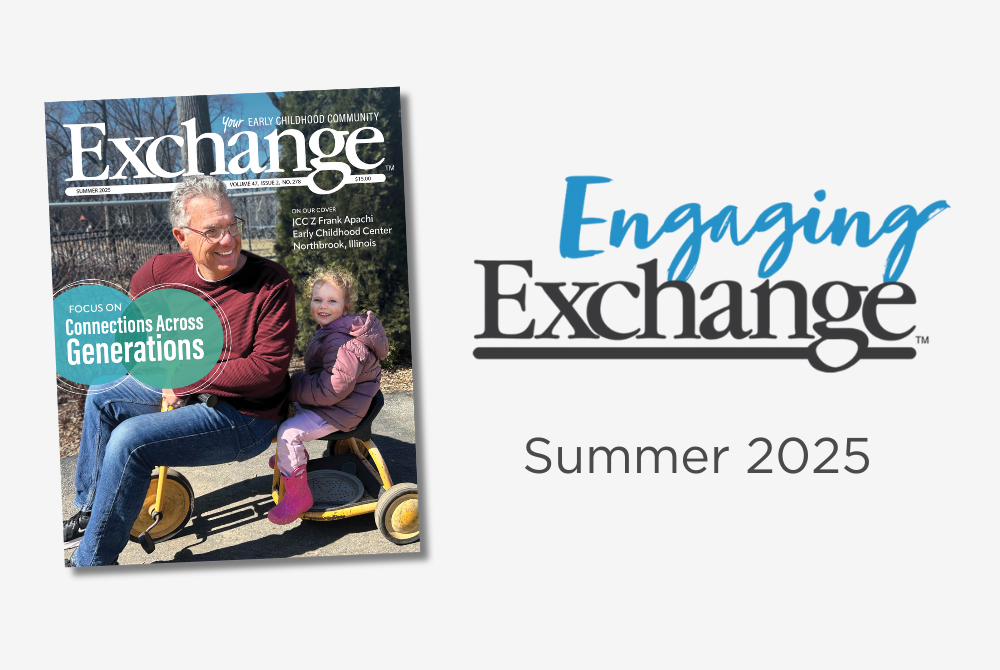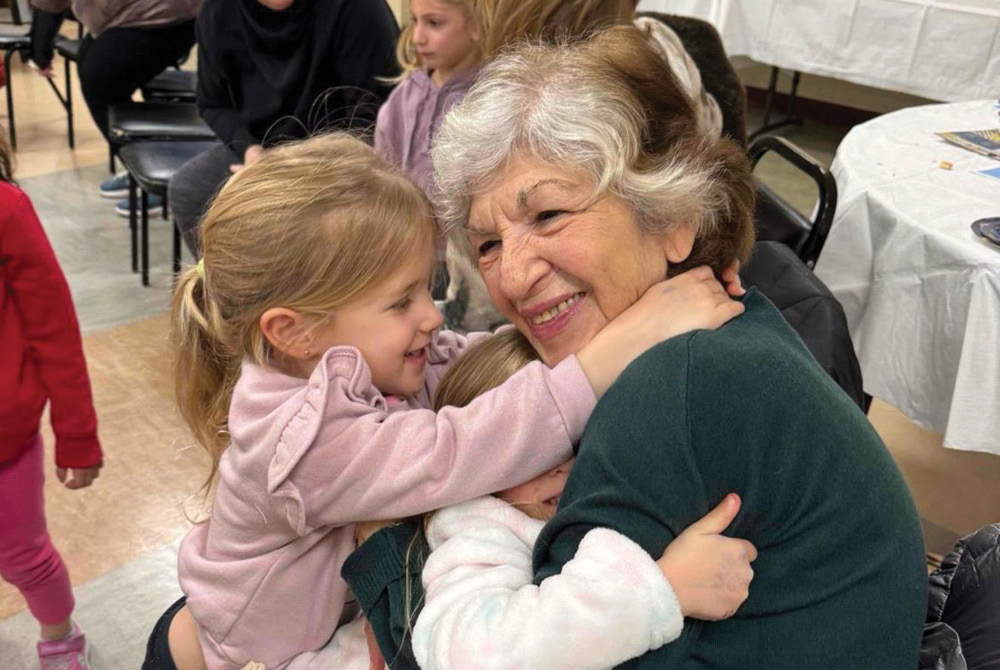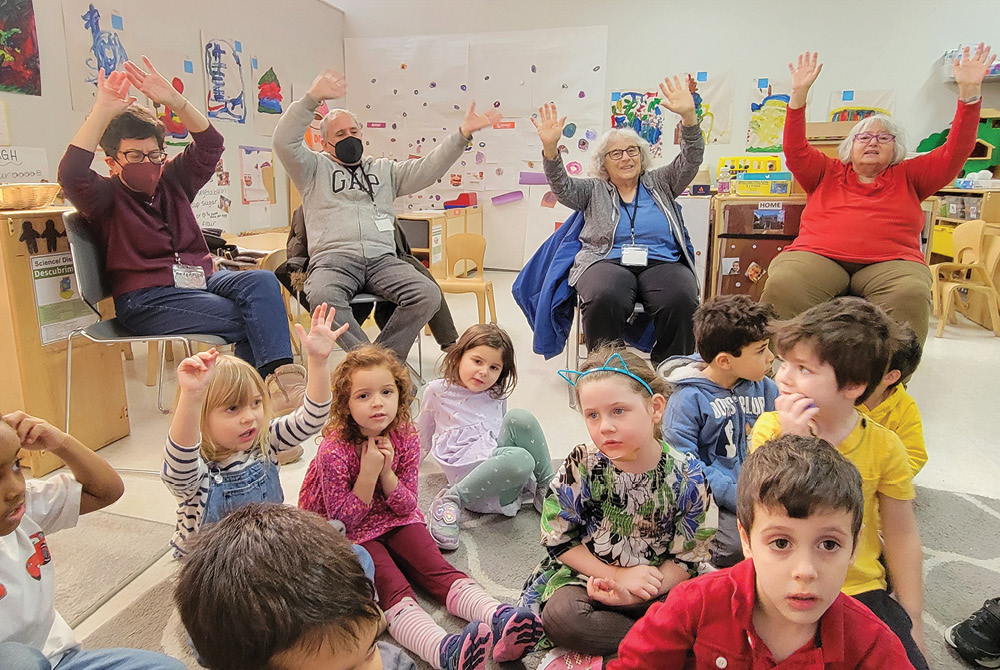Through the Global Leaders for Young Children Program, the World Forum Foundation brings together emerging early childhood leaders from around the world who are passionate about changing the lives of young children, and whose goal is to become effective change agents and advocates for quality early childhood development in their home countries and regions. Two global leaders share their insights on historical trauma, resilience and healing, based on their work with Indigenous early childhood programs.
Healing from History: Australia
Lisa Walker shares her perspective as a First Nations early childhood professional who is leading efforts on authentic cultural engagement in early childhood programs. Walker is a World Forum Foundation Global Leader from the class of 2018.
As a First Nations woman who has worked in various roles over the past 30 years, including the past 16 in early childhood, I believe that …
My people are strong, diverse, and proud. They are knowledgeable, spiritual, rich in culture, and have a deep connection to each other and to Country, and all that comes from her. We carry both intergenerational trauma and wisdom and are the First Peoples.

Our jarjums are more than capable if given culturally appropriate opportunities.
I live in two worlds. The Western world where I exist and advocate for my people, and my First Nations world where I connect, breathe, live and am true to myself. I use my influence and power to share my peoples’ voice and break down the cultural barriers and systemic racism that try to stop my people from achieving. I tell others, “Do not tar us all with the one brush, because we are all individuals, and this is where negative stereotypes come from.”
Mainstream media has a role in this, with a focus on the negative rather than the positive, while social media has given us a global platform to share our truths authentically. I follow in my Ancestors’ footsteps, guided by my Elders, and serve as a role model for our younger generations, who are coming up through our communities strong. This is who I am.
I engage in open and honest yarns (conversations) and share truth about what has happened to my people since invasion and colonization. My people were massacred and were not treated as humans. Our rights were taken. Our jarjums (children) were and are still forcibly removed from Country and kin (family), leaving us feeling disconnected and displaced. We lose a sense of self and belonging, yet thrive on connection. How do we thrive when Country and those around us are foreign and not ours to connect to? This happened the day we were invaded and has not stopped. We refer to these jarjums as our Stolen Generations.
As an early childhood professional, I feel it is important that all educators know our truth, so they gain a better understanding of our people and ways, and can guide our jarjums appropriately in their learning. This is part of the cultural load I carry daily, both personally and professionally. The yarns never stop, the situations continue and educators’ mindsets still need to shift, in order to ensure a more equitable continent for us all. My people make up 3 percent of our multicultural society, so I am constantly encouraging educators to help me carry my cultural load, so we can start to see and feel change within our sector.
ADVERTISEMENT
I believe it is helpful if educators who are not First Nations self-reflect and look at the circles in which they move, acknowledge their biases and educate themselves through authentic channels to unlearn, acknowledge, and relearn our true history, and participate in ongoing cultural learnings. Educators must connect with and get to know the local Traditional Owners where they live, learn, and work, so they know what is culturally relevant to the people of that Country. Educators should take ongoing opportunities to engage, collaborate, network, and wholeheartedly commit to making time to strengthen important connections that will eventually build trust and knowledge with our people. We need approachable and open-minded educators to walk with us on this ongoing two-way cultural learning journey, with us not for us. We need educators who want to yarn, who are ready to listen deeply, who want to work with us and respect what we bring to the table. We know what works for us, so let us be involved and help drive the change for our jarjums to succeed. When this happens, our people will know who you are, and will want to collaborate on ensuring our centres are culturally respectful, safe and welcoming places for our jarjums to thrive.
We need First Nations educators and culture within our learning spaces, so our jarjums can connect and feel a sense of belonging. We want them to feel safe, heal, and share. This is what works for us and will assist in our jarjums’ development toward achieving their individual learning outcomes. Our jarjums are more than capable if given culturally appropriate opportunities.
I have worked for Goodstart Early Learning for the past six years, and we are on this journey now, taking the time to appropriately and respectfully embed culture into our everyday practice at the top of the organization, so that it filters down into our centres on the grassroots level and, in turn, out into our individual communities. Goodstart knows we have the opportunity to shape the next generation, and recognizes and respects First Nations and Torres Strait Islander cultures and heritage as a proud part of our shared identity.
Goodstart was founded 11 years ago by a partnership of four of Australia’s leading charities, which recognised that a child’s early years experiences have a huge influence on the rest of their lives. Today, we are the largest provider of early learning and care and the largest non-governmental provider of preschool and kindergarten programs throughout Australia. One-third of our centres are in rural and regional areas, one quarter are in low socio-economic areas and we have 40 Enhancing Children’s Outcomes centres that offer enhanced programs and specialized services to support our most vulnerable children and families. Our guiding principles are:
- Children are central to everything we do.
- Our people make the difference.
- Families are our primary partners.
- Being a valued part of each unique community.
Goodstart currently employs over 15,000 Goodstarters, including 1,500 teachers across 664 centres, who guide our 67,000 jarjums and support their 56,000 families into becoming the next generation of culturally accepting, open-minded, and approachable young people.
At the end of the day, we are all here together and our jarjums belong, too. They deserve to grow up strong and proud in who they are and what they feel, and I cannot wait for the day my people will be treated as equals, will be respected, will have hope and access to the same opportunities, and will achieve their goals, to finally make their dreams a reality too.
When and where are you going to start on your own ongoing, two-way, cultural learning journey, and how will you advocate for the First Nations jarjums that you guide?
Journey Toward Healing: United States
Kim Nall, a member of the Global Leader class of 2011 and Global Leader regional coordinator from 2016-2022, shares the journey toward healing for tribal child care administrators in California, an effort to assist administrators in identifying culturally appropriate resources and engage in their own personal journeys of healing.
There is growing concern about the long-term effects of traumatic early childhood experiences on adult health, mental health and well-being. We are bombarded with information about Adverse Childhood Experiences on a regular basis. Although this information has helped build critical awareness of preventing, mitigating, and treating childhood trauma, it may also be misunderstood, feeding fears, hopelessness, stress, and a narrow, deficit-oriented view of a child’s potential. Not all traumatizing events occurring in early childhood will lead to lifelong physical, emotional, and mental health issues. Trauma can alter the way we respond to situations and events in our world, how we cope throughout life, and how we perceive stressful situations. It can increase the risk of adverse overall health in adulthood—but increased risk is not equivalent to destiny. In order to be better equipped to navigate the effects adverse experiences have on children and families, it is valuable for early childhood professionals to have both internal and external resources to lean on. Having strength-based resources can provide resiliency and the ability to focus on wellness and healing, rather than challenges. Early childhood providers, teachers, and administrators can support children and families through building trusting relationships and connecting them to community resources.
Native American communities in the United States have faced multigenerational trauma due to generations of violent colonization, attempted genocide, and oppressive federal policies. During Tribal Child Care Association of California meetings with tribal child care administrators, conversations were shared related to the lack of access to culturally informed resources. Administrators requested resources that address historical trauma, intergenerational trauma, and increased stress and trauma due to the pandemic, the climate emergency, racism, intensifying political polarization, and economic inequity. As a result, the TCCAC board of directors, culture committee, and facilitators from Brazelton Touchpoints Center co-created “The Journey Toward Healing,” a series of 11 trauma-informed, healing-centered conversations (brazeltontouchpoints.org).
The goal of the conversations was to give context to what trauma-informed care means, to center our community of caregivers on healing and hope, to build a community of trust among tribal peers, and to hear from experts in the field. Planning the series took a thoughtful and intentional approach. Our conversations included tribal leaders, tribal elders, early learning and care providers, psychiatrists, infant and early childhood mental health consultants, national policy leaders, and others. Many brought their own trauma narratives and healing journeys of hope. TCCAC acknowledges that the journey toward healing is not a straight path, and there can be many roadblocks along the way. Not one healing journey will be the same as another. Professionals must find internal and external strengths and navigate our own personal journeys. We must first feel safe enough to ask for help, we must have someone we can ask who will not see us as damaged or victims, but rather will help us see and build on our own strengths.
TCCAC’s journey toward healing honored our individual paths to discover our own strengths and resilience, even when we may have been unaware of their presence. The focus on strengths, culture, trusting relationships, integrity, and hope, as opposed to a focus on victimization, uncertainty, and stress was an important element in planning the conversations. This emphasis was balanced by the recognition that, while focusing on the positive, we needed to be honest and real in recognizing the challenges. In planning, we acknowledged that some conversations might trigger trauma reactions from past experiences, coupled with the fact that the conversations were occurring during the pandemic as new traumas were emerging. We took care to include ways to build on strengths and resiliency. With the help of its culture committee, TCCAC sent all participants “healing bags” prior to the conversations. These healing bags were thoughtfully created to include powerful traditional medicine for healing. The conversations always ended with a talking circle led by individuals who facilitated a feeling of safety, valuing all participants and creating a way to debrief from the intensity of the conversations.
TCCAC and Brazelton Touchpoints Center, along with the journey toward healing presenters and participants, identified ways to restore hope and to affirm and celebrate the healing effects of spirituality, traditions, and culture. As early learning programs strive to identify trauma and support healing in children, parents and the communities we serve, practitioners must start with self-compassion. To heal from trauma, it is important to identify external resources and internal resources that work for us, and recognize and acknowledge our individual differences and our common humanity. Hope can often be clouded by stress, physical, emotional and mental health challenges, substance use struggles, and other factors. The more hope we feel and the more strength we discover in ourselves and around us, the more likely we will be able to seek and believe in help, and then focus on healing and restoring hope to other individuals, as well.
References
Nahulu, L., Hasbah Roessel, M., and Sahlu, S. (2021). Stress and Trauma Toolkit for Treating Indigenous People in a Changing Political and Social Environment. American Psychiatric Association. psychiatry.org
Ohio AEYC. (2020, June 18). Using Culturally Responsive, Trauma-Informed Practices During COVID-19 with Joshua Sparrow [Video]. YouTube. youtube.com
Post-traumatic Stress Disorder. (n.d). American Psychological Association. apa.org
Umbreit, M. (2003). Talking Circles. Center for Restorative Justice and Peacemaking.
Related
ADVERTISEMENT












